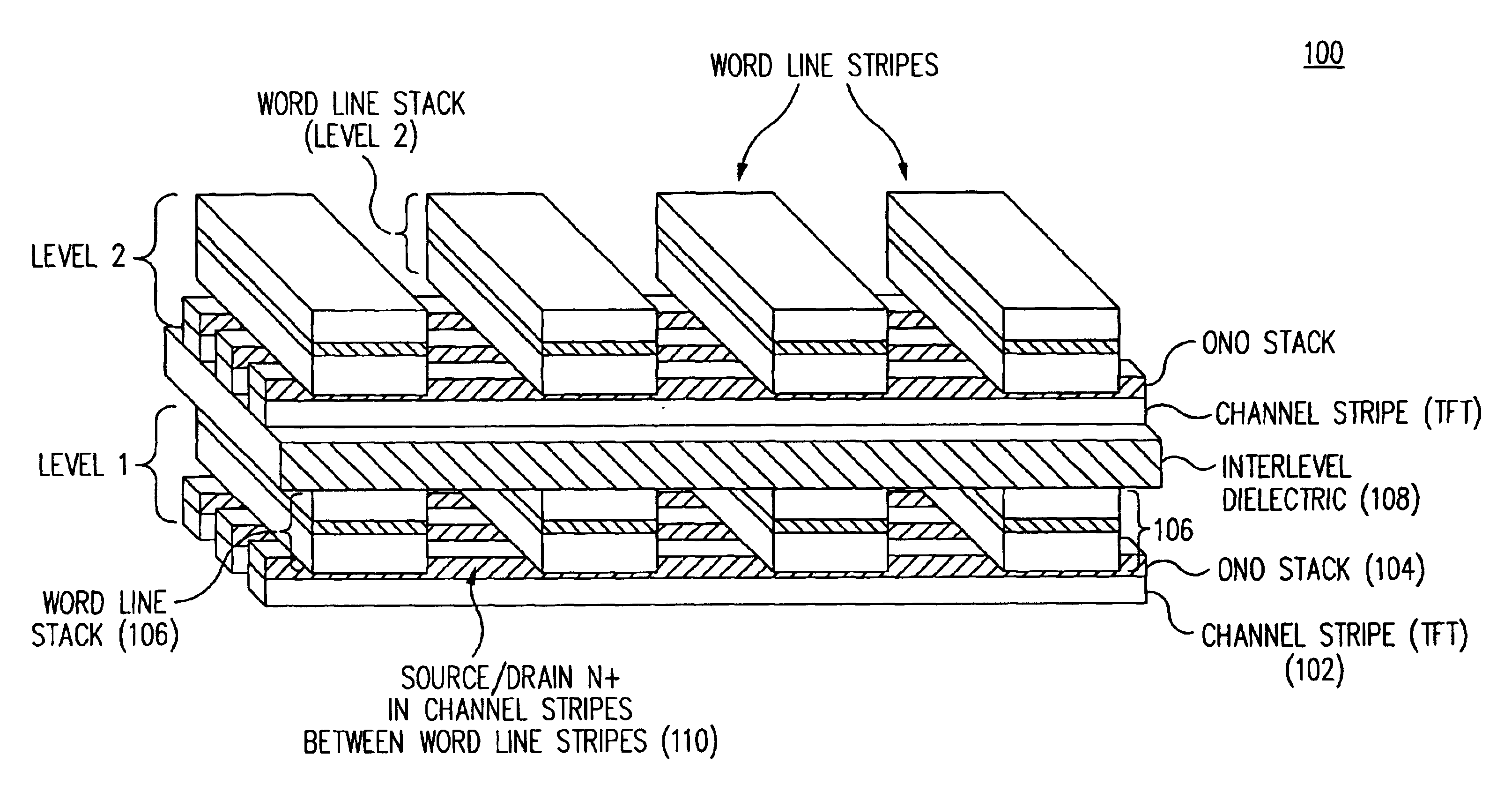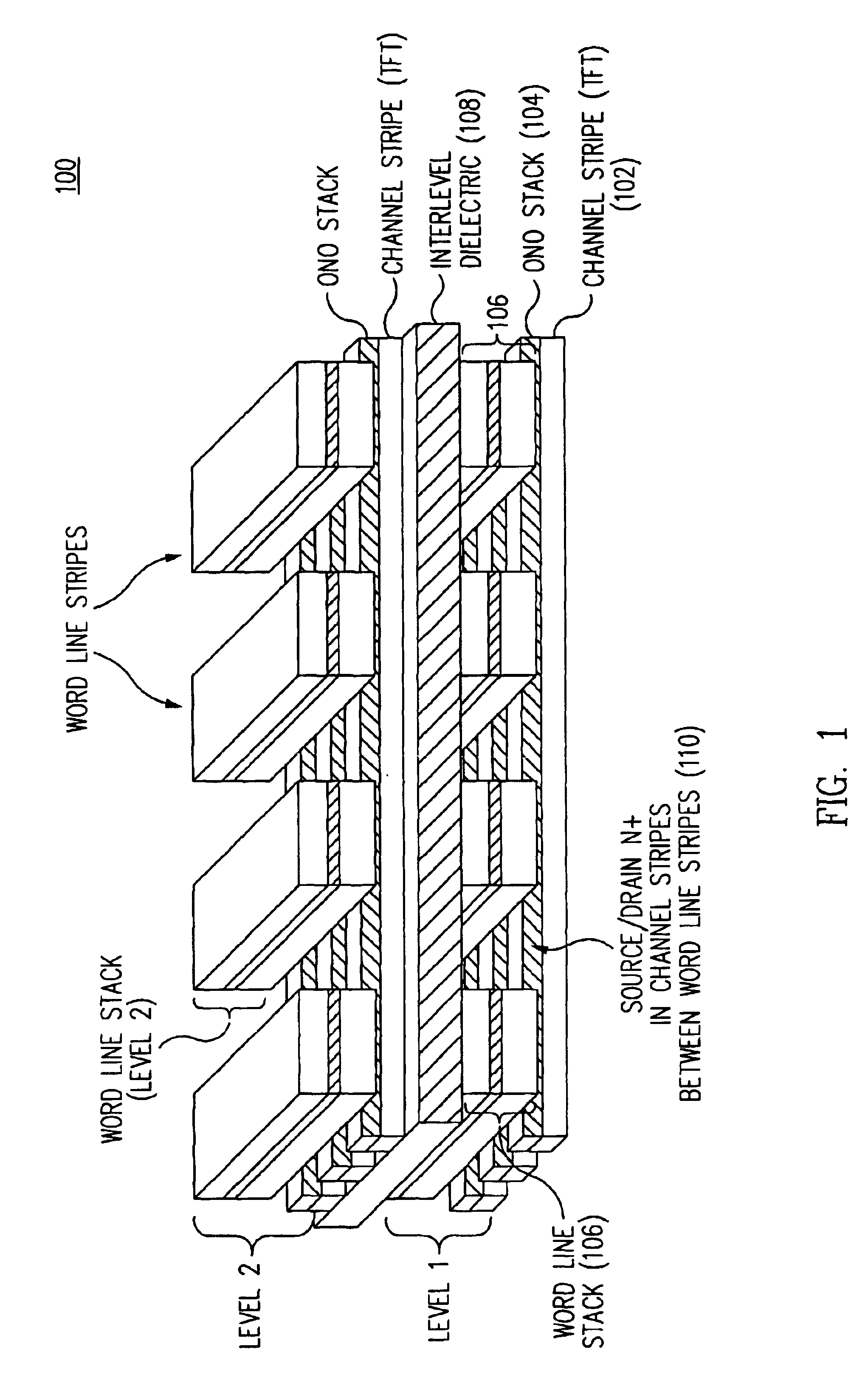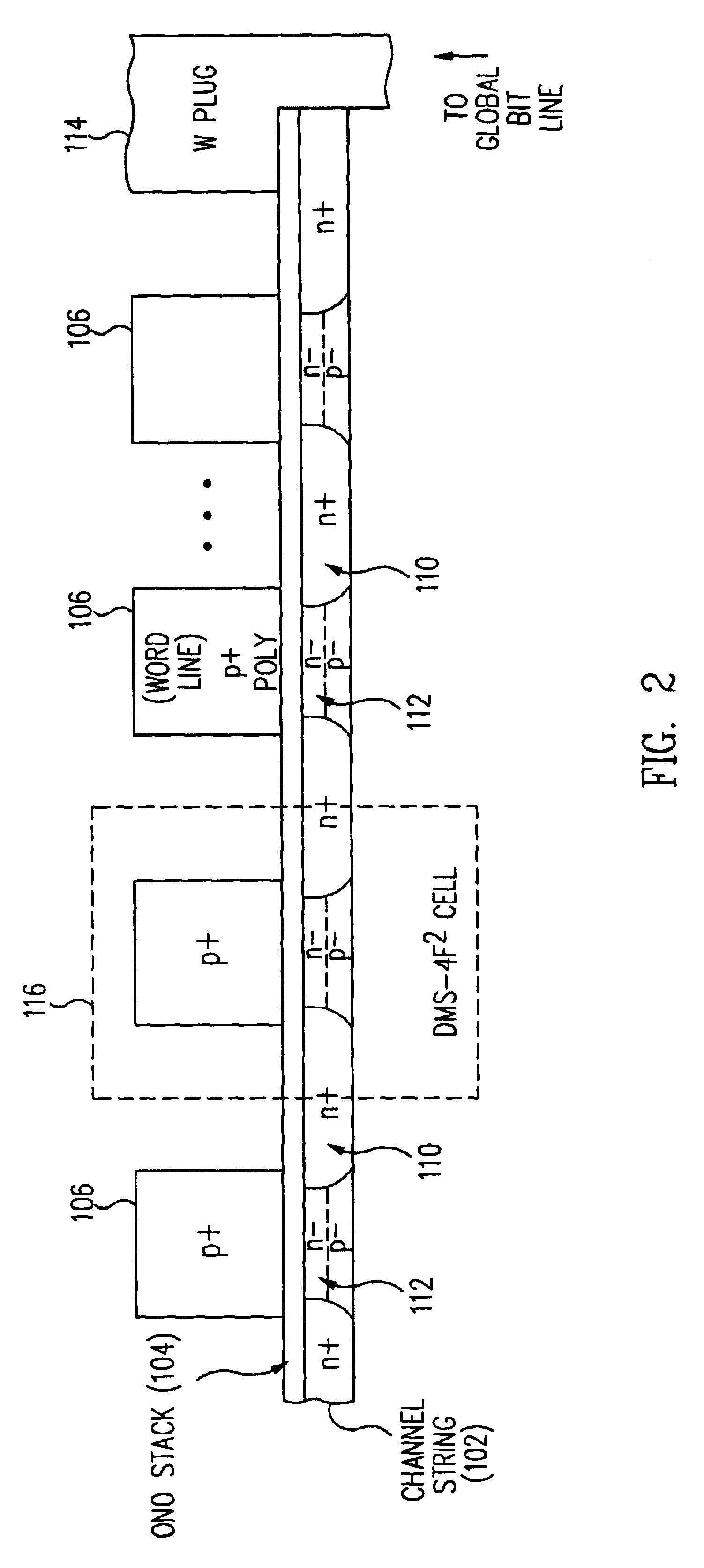Method for fabricating programmable memory array structures incorporating series-connected transistor strings
a series-connected transistor and array structure technology, applied in the field of monolithic three-dimensional memory arrays with series-connected memory cells, can solve the problems of less desirable 3d memory memory cells, and achieve the effect of reducing the number of different structures needed for each nand string and a dense memory array
- Summary
- Abstract
- Description
- Claims
- Application Information
AI Technical Summary
Benefits of technology
Problems solved by technology
Method used
Image
Examples
Embodiment Construction
)
[0049]As used herein, an integrated circuit having a three-dimensional memory array is assumed to be a monolithic integrated circuit, rather than an assembly of more than one monolithic integrated circuit.
[0050]Referring now to FIG. 1, a three-dimensional view is shown conceptually depicting a portion of a two-level memory array 100 in accordance with the present invention. On level 1, a plurality of channel stripes (e.g., 102) is formed in a first direction. A stored charge dielectric layer 104, such as an oxide / nitride / oxide (ONO) stack, is formed at least on the top surface of the channel stripes 102. A plurality of gate stripes (e.g., 106) running in a second direction different than the first direction is formed on the stored charge dielectric layer 104. Preferably the gate stripes, also called word line stripes, run generally orthogonally to the channel stripes. A source / drain region (e.g., 110) is formed in the channel stripes in the exposed regions between the word line str...
PUM
 Login to View More
Login to View More Abstract
Description
Claims
Application Information
 Login to View More
Login to View More - R&D
- Intellectual Property
- Life Sciences
- Materials
- Tech Scout
- Unparalleled Data Quality
- Higher Quality Content
- 60% Fewer Hallucinations
Browse by: Latest US Patents, China's latest patents, Technical Efficacy Thesaurus, Application Domain, Technology Topic, Popular Technical Reports.
© 2025 PatSnap. All rights reserved.Legal|Privacy policy|Modern Slavery Act Transparency Statement|Sitemap|About US| Contact US: help@patsnap.com



